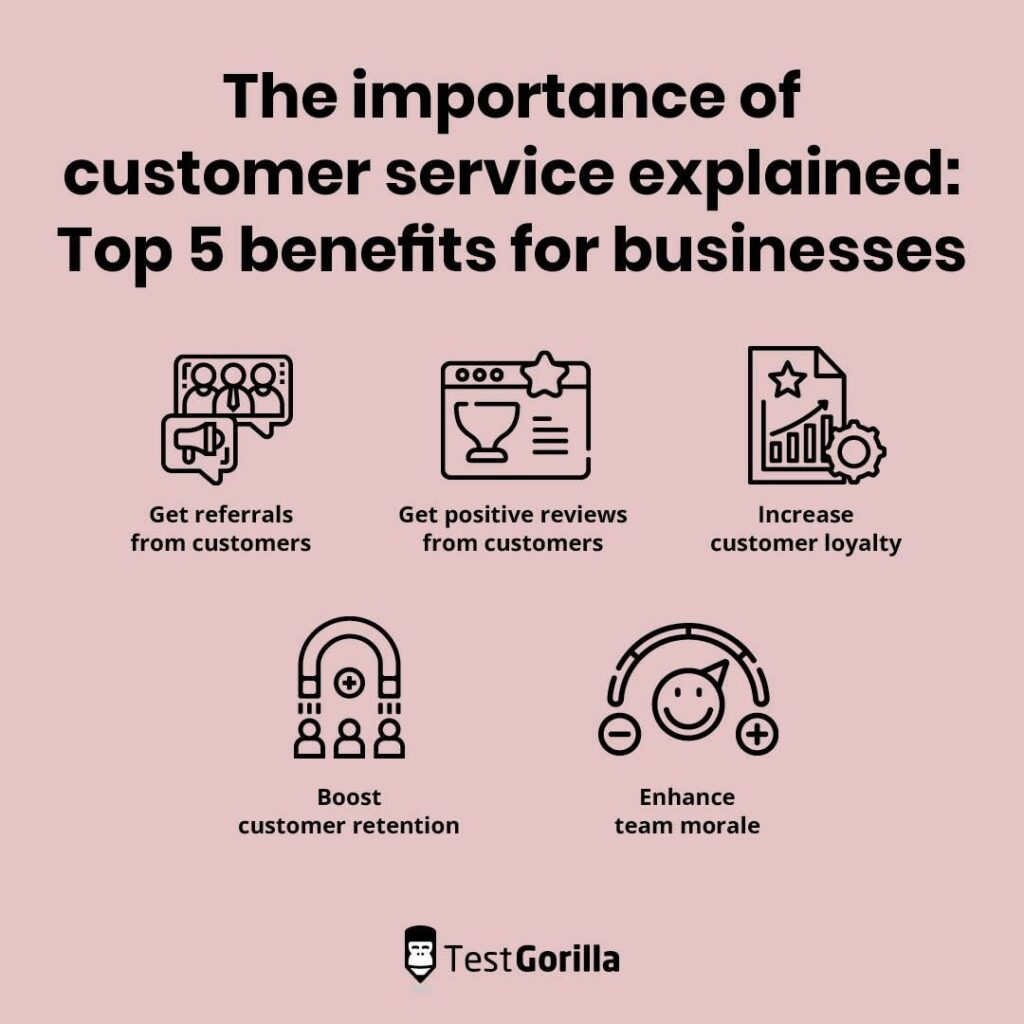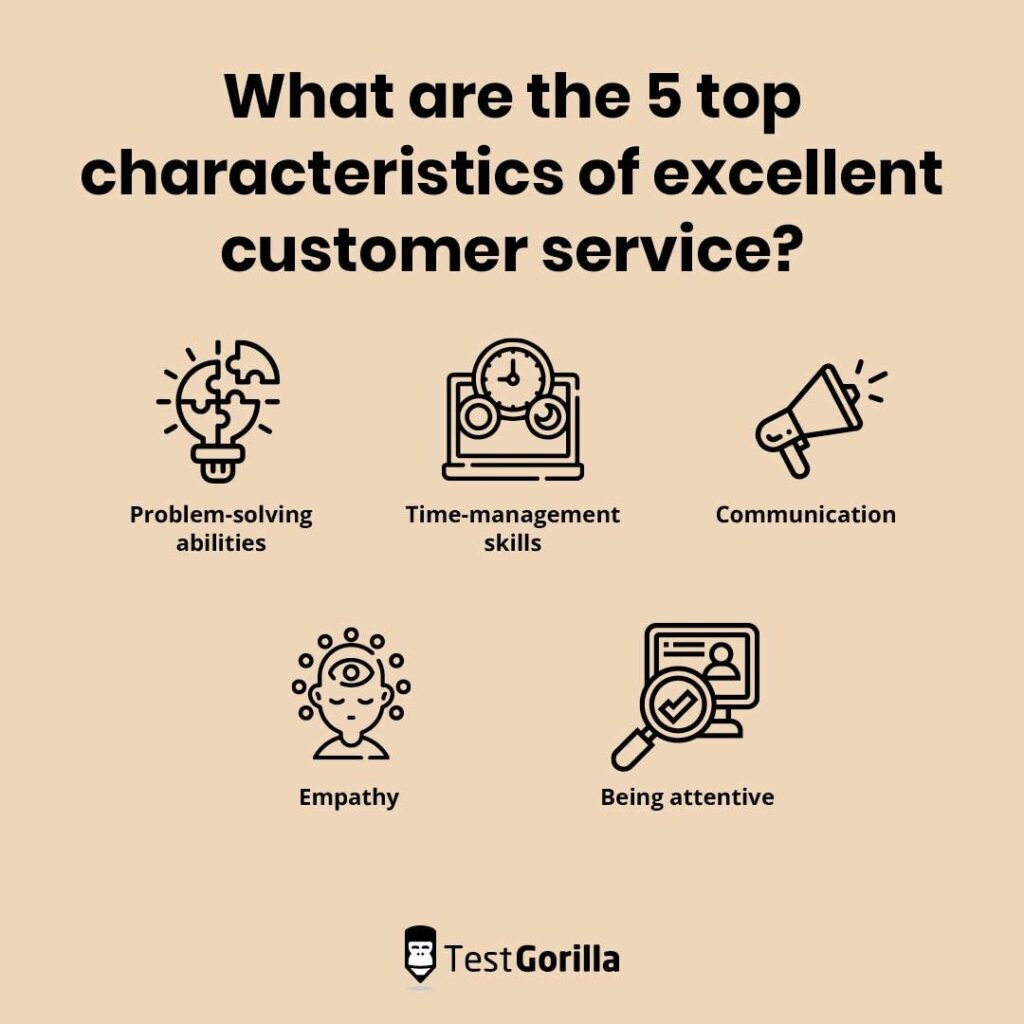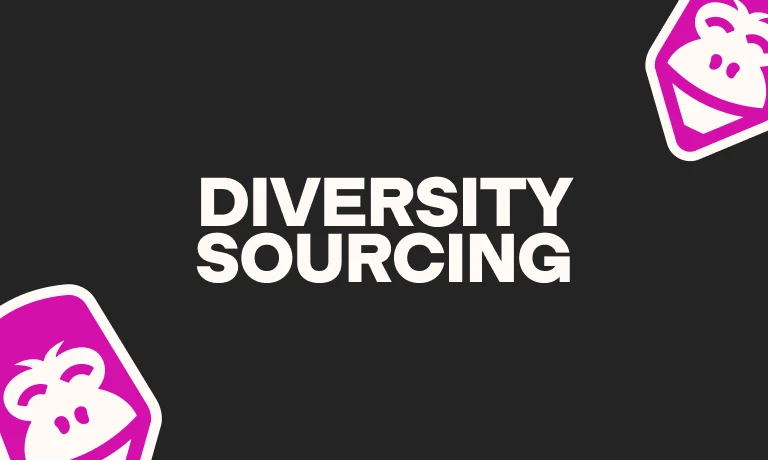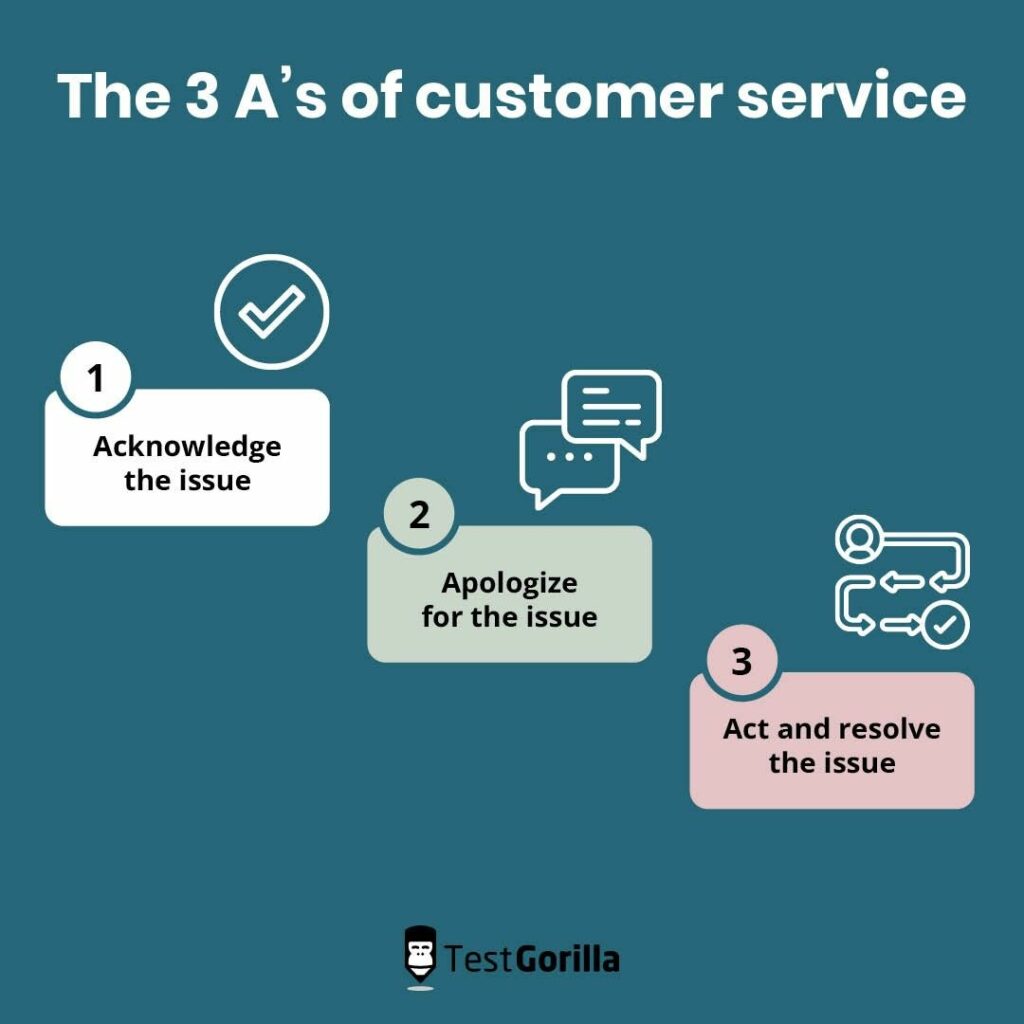Success in CS: Top 5 characteristics of customer service employees who excel
Even if you have an exceptional product or service, if your company doesn’t have a strong customer-service (CS) team who operates with empathy, compassion, and integrity, you’ll encounter issues.
That’s why you need skilled customer-service professionals who can help you achieve and maintain an excellent level of customer care.
But what are the top characteristics of customer service employees who excel? In this article, you’ll find the answers to this question – and more.
To hire the right customer-service reps or train existing professionals, it helps to be aware of the key characteristics and skills that your CS reps need to make customers feel valued.
But first, let’s start with the basics.
Table of contents
- What is good customer service?
- What is the number-one rule in customer service?
- The importance of customer service explained: top 5 benefits for businesses
- What are the 5 top characteristics of excellent customer service?
- How can hiring managers and recruiters assess customer-service skills?
- What are the 3 A’s of customer service?
- Build a strong customer service team and delight your customers with TestGorilla
What is good customer service?
Good customer service means offering existing and potential customers the support they need to make full use of your product or service.
Customer-service professionals might solve customers’ issues in person or via email, phone, chat, or social media, and should always strive to deliver excellent customer service in line with your business’s customer service documentation.
What is the number-one rule in customer service?
Although each business’ definition of excellent customer service is unique, there’s one golden rule all customer-service representatives should always apply: Treat your customers as you would like to be treated.
Applying this adage to your customer-service function is simple: Ensure your customer-service professionals frequently ask themselves, “Is this how I would like to be treated if I took my concern to customer service?”
Of course, respect, empathy, positivity, and customer engagement can go a long way to providing high-quality service. But ensuring your customer-service professionals implement this rule by putting themselves in their customers’ shoes is the first step that can lead to better outcomes.
The best insights on HR and recruitment, delivered to your inbox.
Biweekly updates. No spam. Unsubscribe any time.
The importance of customer service explained: top 5 benefits for businesses
Good customer service is beneficial regardless of whether your business is an international corporation or a small local company. Prioritizing your customers’ needs and providing them with an excellent experience can help your business in the following ways:
1. Get referrals from customers
When you ensure your customers have a great experience, they’re more likely to talk about it with their family and friends.
According to a study by Salesforce, 72% of customers are likely to share with others their positive impressions of a business. The more your existing customers share their positive experiences with others, the more new potential customers you’ll attract – and they’re likely to become paying customers at some point, too.
2. Get positive reviews from customers
Your customers may be more inclined to leave your business a five-star review if they receive good customer service.
With more positive reviews on your social media profiles, on your website, and on your Google Business Profile, your online exposure increases; a better online presence can help you reach a wider audience and get you more customers.
3. Increase customer loyalty
Good customer service can lead to enhanced loyalty from your customer base; it makes clients notice and appreciate the top treatment they get from you and look forward to using your services in the future.
In fact, customers are willing to pay more to be treated better: According to Customer Service & CX Expert Shep Hyken, 58% of customers would pay more if they knew they’d receive top customer service.
So, with the right approach, you can certainly improve customer loyalty and boost your sales – even if your product is not among the most affordable options.
4. Boost customer retention
The better customer service you provide, the more likely are your customers to return and buy from you again.
If your CS professionals know how to nurture customer relationships, your clients will have more incentives to choose your business again in the future, which, in turn, will increase your profits and boost your reputation.
5. Enhance team morale
It’s not only your customers who benefit from excellent customer service. As your business attracts repeat customers and your sales increase, your staff will inevitably begin to notice the results of their hard work.
Increased team morale and enthusiasm, combined with increased customer satisfaction, leads to better company performance.
What are the 5 top characteristics of excellent customer service?
So, what are the best characteristics of customer service that make your clients feel welcome, appreciated, and respected?
In this section, we’re looking at the top five skills and abilities CS reps need to have if you want your business to be known for its excellent customer service.
1. Problem-solving abilities
Sometimes, customers may not be aware of the cause of a problem. In these situations, a customer service representative must be able to swiftly diagnose the problem and determine the cause.
Knowing what the error is and understanding what the customer needs are two distinct skills, but they both require strong problem-solving abilities. And indeed, the best customer service professionals know how to resolve problems quickly and efficiently.
2. Time-management skills
Customer service representatives may not always know how to solve a customer’s problem, but they should always strive to be efficient and manage their time well – and know when to get in touch with another team member or their team lead to not waste the customer’s time.
Handling situations such as these requires top time-management skills. Customer-service agents should always start by being patient and empathetic to understand the issue, but if they are compromising efficiency and spending too long trying to solve a problem, knowing when to ask for help from others is also important.
And, of course, during busy periods every member of your CS team needs to know how to manage priorities and be quick and efficient in their work.
3. Communication
There are two elements to efficient communication that enable customer service reps to provide excellent customer service:
Active listening to understand customers’ challenges and needs
Strong written and spoken communication skills to explain the solution and share your company’s policies and values
Using the wrong communication style or sharing the wrong information can harm the customer experience and result in losing a loyal customer. Exceptional customer-service professionals communicate clearly and positively and avoid ambiguous language when talking to customers.
4. Empathy
Being able to understand the customer’s feelings is one of the most important characteristics of customer service employees who excel – and is essential for delivering an excellent customer experience.
If a customer service agent cannot solve a customer’s problem immediately or give them the advice they’re looking for, empathy can help them make the customer feel understood and recognized.
An important part of showing empathy is using the right tone when speaking or sending written messages to customers. This approach can:
Appease customers
Show that your business values their feedback
Communicate that you’re willing to help
5. Being attentive
Being attentive means actively listening to a customer’s concerns. It involves understanding and focusing on customer feedback to implement the correct changes and improve the customer experience, even if the feedback is subtle or not very explicit.
How can hiring managers and recruiters assess customer-service skills?
So, you’re hiring a customer service representative or an entire team and need to assess candidates’ customer service skills? The best way to do that is to use skills testing.
Skills assessments can reveal whether your applicants have the right customer-service skills before you hire them.
The ideal test you can use is our Customer service test, which helps you evaluate four skills:
Understanding clients’ queries and identifying the causes of a problem
Using the right etiquette, language, and attitude with customers
Reducing the likelihood of negative impressions
Using the correct solutions to solve customers’ problems
But that’s not all! On our platform, you can combine up to five tests in a single assessment. This way, you can evaluate four more related customer service skills, such as problem-solving and communication. We offer several tests to help you find the right candidates: Simply head to TestGorilla’s test library to find the tests that best cover the skills you’d like to assess.
What are the 3 A’s of customer service?
When your business makes a mistake, it’s up to your customer service agents to address and resolve any customer issues. Below, you can find the three A’s of customer service that can help your team members solve the problem in the right way:
1. Acknowledge the issue
The first step is to acknowledge the issue immediately. It doesn’t matter if a customer-service professional does not have a solution straight away – acknowledging the problem instantly is vital, as it shows that your business prioritizes your customers’ concerns.
2. Apologize for the issue
When your customer-service team apologizes for an issue, they should remember the golden rule of customer service and put themselves in your customers’ shoes.
Offering an authentic apology that acknowledges the specific problem and shows empathy is important and helps your team bridge the gap between making a mistake and resolving it.
3. Act and resolve the issue
Taking action is vital in resolving the complaint; without taking action, your team’s apology may feel worthless to your clients. If your team is unsure how to resolve the issue, they should get support from other team members.
Build a strong customer service team and delight your customers with TestGorilla
Enhancing customer service is difficult, but hiring the best customer service professionals can help with this. If you need to learn whether your applicants have the right customer service skills, skill testing with TestGorilla is the easiest way to find out.
Try our skills-testing platform for free to see for yourself how easy it is to make better hires and improve the quality of your customer service.
You've scrolled this far
Why not try TestGorilla for free, and see what happens when you put skills first.





















